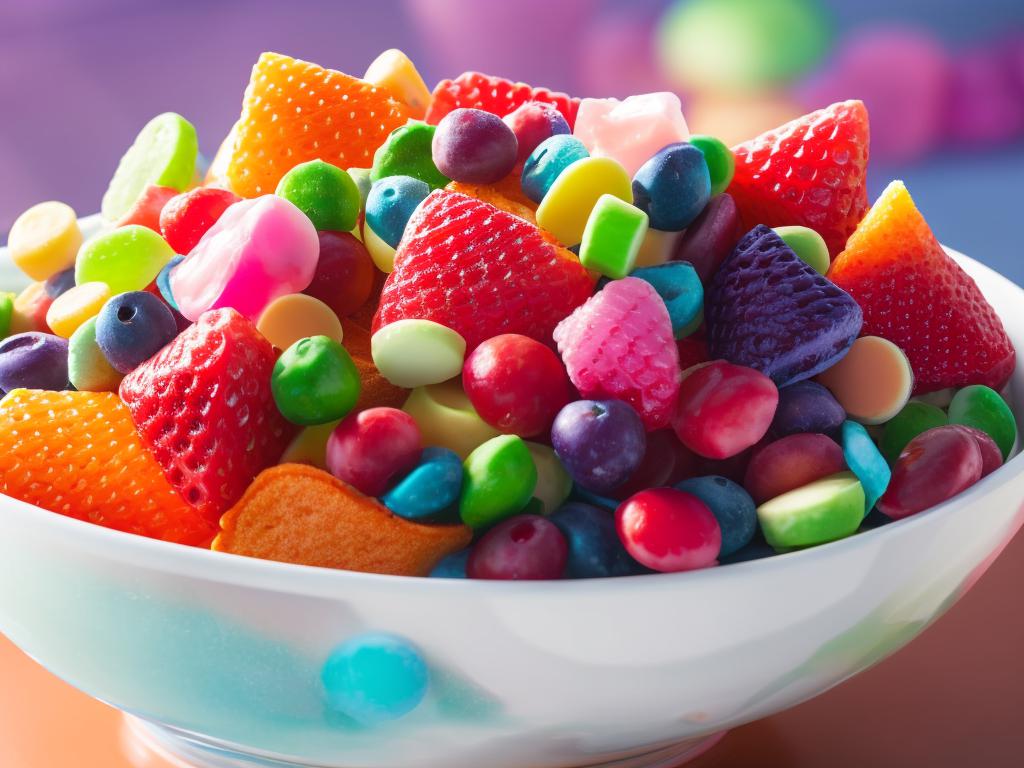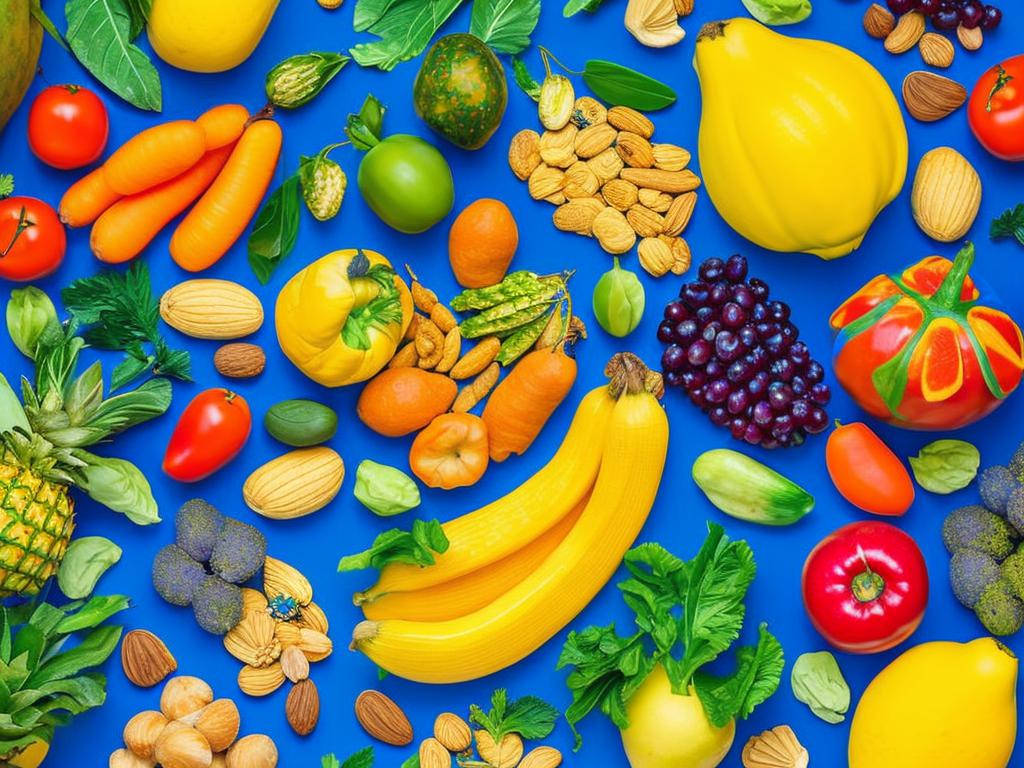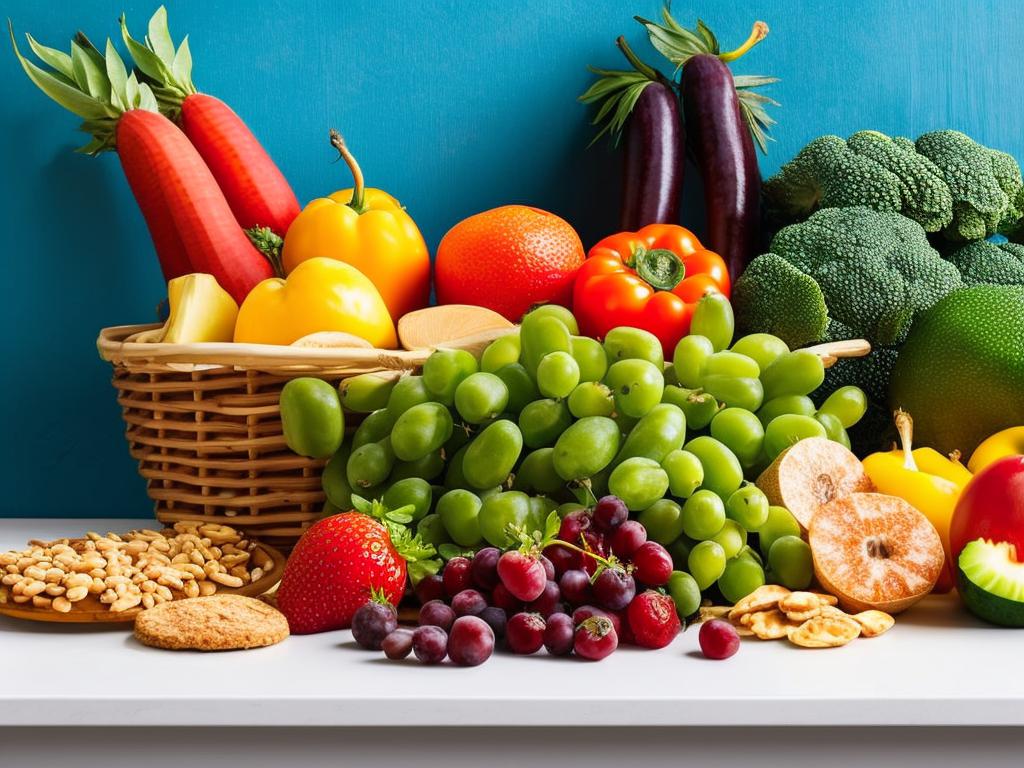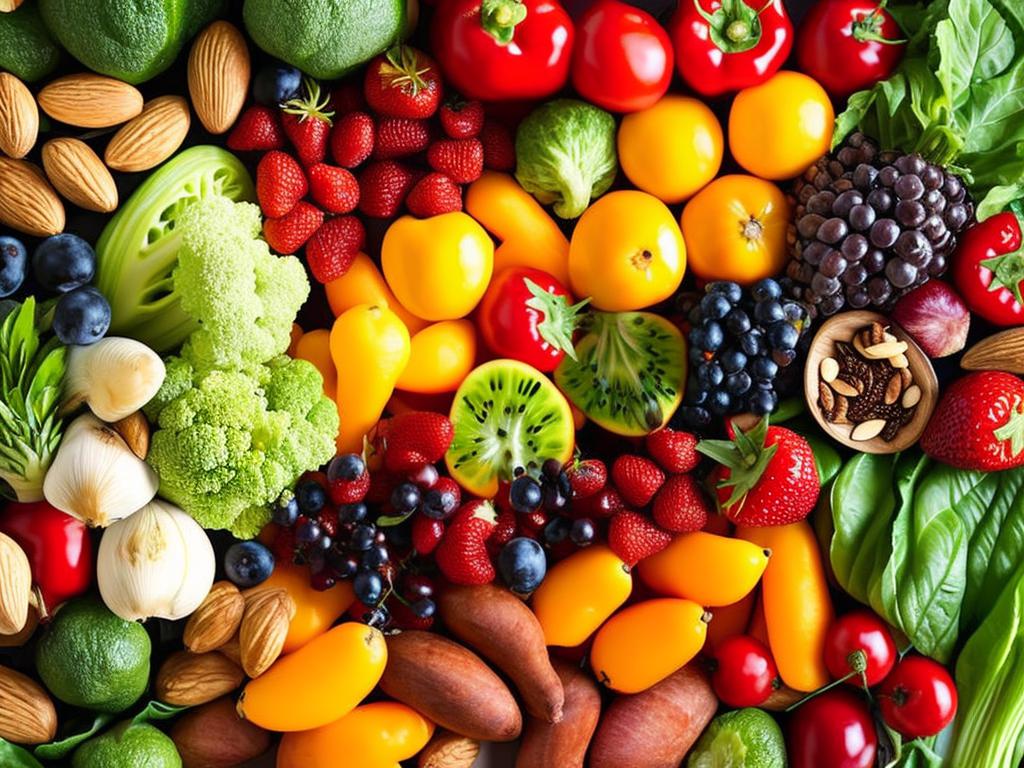The impact of sugar on your weight loss journey.
The impact of sugar on your weight loss journey.
 The weight loss journey is full of obstacles, but one that may be holding you back more than you realize is sugar.
The weight loss journey is full of obstacles, but one that may be holding you back more than you realize is sugar.
Regular consumption of added sugars can impede progress toward your fitness and health goals, so it's important to understand the impact that added sugars have on your body and overall diet.
Knowing this information can help you make informed decisions about how to effectively manage your diet for optimal success.
Understanding The Link Between Sugar And Weight Loss
 Sugar is one of the most commonly consumed ingredients in processed foods and drinks.
Sugar is one of the most commonly consumed ingredients in processed foods and drinks.
There is a growing concern about how much sugar people are consuming, especially when it comes to weight loss goals.
So let's take a closer look at the link between sugar and weight loss.
At its core, both sugar and carbohydrates contain around 4 calories per gram which get absorbed into your body as energy.
When you consume excess amounts of these calories beyond what you need for daily activity or exercise, it can get stored as fat leading to potential long-term health issues like obesity-related diseases such as heart problems or diabetes type
2. So understanding the number of carbs (including sugars) that enter your system through food helps keep track of the overall calorie intake necessary for a balanced weight management journey over time.
The other aspect important to understand with regards to this subject matter is "the insulin effect" during the digestion process: Insulin – produced by the pancreas - plays an important role here helping cells absorb glucose from blood stream also known “blood sugar” maintaining optimum levels in our systems needed for balanced energy levels; excess consumption however triggers further release causing spikes in blood pressure followed by sudden drop making us experience symptoms usually referred as hypoglycemia i.e lightheadedness paired with fatigue along with cravings.
Therefore monitoring carbohydrate intake alongside proteins & fats becomes a paramount part of any healthy eating plan being designed for sustainable, results-oriented aims achieved over time rather than the short-term fixes often provided.
Sugar and Weight Loss
- Sugar and carbohydrates contain around 4 calories per gram.
- Excess calories can be stored as fat, leading to long-term health issues.
- Insulin helps cells absorb glucose from the bloodstream.
- Excess consumption of sugar can cause spikes in blood pressure.
- Monitoring carbohydrate intake is important for a healthy eating plan.
The link between sugar and weight loss is an important one to understand.
Excess consumption of sugar can lead to long-term health issues, and monitoring carbohydrate intake is essential for a healthy eating plan.
By understanding the number of carbs (including sugars) that enter your system through food, you can keep track of your overall calorie intake and achieve balanced weight management over time.
How Sugary Foods Affect Your Waistline
 How Sugar Affects Weight Loss
How Sugar Affects Weight Loss
The human body processes sugar differently than other macronutrients, and it has the most significant impact on your waistline. Our bodies utilize carbohydrates to produce glucose for energy consumption.
When consumed in excess, these sugars are converted into fat cells and stored around our midsections.
Sugary foods contain more calories than natural alternatives like vegetables or fruits that offer nutritional value without adding calories.
Consuming sugary beverages such as soda or sweetened coffee drinks have been linked to higher rates of obesity due to their high-calorie content with no added health benefits compared to consuming water instead. The American Heart Association recommends limiting the daily intake of sugar-sweetened beverages (SSBs) to less than 36 fluid ounces per week for male adults and fewer than 25 fluid ounces per week for female adults.
Eating food made with refined white flour can also be detrimental when trying to lose weight because they raise blood glucose levels quickly, leading you to crave more sugary snacks later down the line; whereas complex carbs found in whole grains digest slowly providing sustained energy throughout the day, allowing you to stay fuller longer and reducing cravings for quick fix sweets!
Complex carbs such as quinoa, oats, brown rice, barley, etc. are low glycemic index, which is key when choosing carb sources if looking to optimize your weight loss journey.
How Sugar Affects Weight Loss
- Sugars break down rapidly leading to spikes in insulin-stimulating storage of fat cells around the abdomen
- Food sweeteners provide extra caloric intake with no additional nutrients
- Increase Blood Glucose Levels Quick
How sugar affects weight loss is an important factor to consider when trying to lose weight. Sugars break down rapidly leading to spikes in insulin, which stimulates the storage of fat cells around the abdomen.
Food sweeteners provide extra caloric intake with no additional nutrients, and they can increase blood glucose levels quickly.
Consuming sugary beverages such as soda or sweetened coffee drinks have been linked to higher rates of obesity due to their high-calorie content with no added health benefits compared to consuming water instead.
The American Heart Association recommends limiting daily intake of sugar-sweetened beverages (SSBs) to less than 36 fluid ounces per week for male adults and fewer than 25 fluid ounces per week for female adults.
Eating food made with refined white flour can also be detrimental when trying to lose weight because they raise blood glucose levels quickly, leading you to crave more sugary snacks later down the line.
Complex carbs found in whole grains digest slowly providing sustained energy throughout the day, allowing you to stay fuller longer, and reducing cravings for quick-fix sweets! Complex carbs such as quinoa, oats, brown rice, barley, etc. are low glycemic index, which is key when choosing carb sources if looking to optimize your weight loss journey.
Understanding how sugar affects weight loss is essential for successful weight loss.
The Effects Of Sugar On Insulin Regulation
 Sugar is one of the most popular ingredients in diets today and has a direct link to obesity, metabolic diseases, heart disease, diabetes, and more.
Sugar is one of the most popular ingredients in diets today and has a direct link to obesity, metabolic diseases, heart disease, diabetes, and more.
Sugar's impact on insulin regulation—the body’s process for regulating blood glucose levels—is also very significant.
When sugar enters the system after eating it can trigger an overload of insulin production from your pancreas which results in rapid fluctuations in blood glucose levels that can eventually lead to higher weight gain over time.
Cutting Out Sugar for Weight Loss
Insulin works by allowing glucose into cells where it is processed into energy or stored as glycogen (stored carbohydrates).
When you consume large amounts of sugars your body produces an excessive amount of insulin that causes fat cells to become overloaded with lipids resulting in weight gain because much less fat gets burned off for fuel during exercise than when healthy foods are consumed instead.
High levels of circulating insulin have been linked to increased risk factors for many systemic chronic diseases like cardiovascular disease and type 2 diabetes due to their effects on inflammation throughout the entire body.
The negative health implications associated with sugar consumption don't end there: too much sugar intake creates a vicious cycle wherein high spikes in blood sugar cause even greater appetite cravings leading people towards further sugary treats only exacerbating any existing unhealthy state all while providing little nutritional value along each bite taken!
All these things together form what we now understand as “insulin resistance”; this condition makes it harder for our bodies natural hormones such as leptin -
Cutting Out Sugar for Weight Loss
Cutting out sugar for weight loss is a great way to improve your health and reduce your risk of developing chronic diseases.
Here are some tips to help you get started:
- Reduce your intake of processed foods and drinks that contain added sugars.
- Replace sugary snacks with healthier options like fruits, vegetables, and nuts.
- Limit your intake of sugary drinks like soda, juice, and energy drinks.
- Choose whole grain bread and cereals instead of white bread and sugary cereals.
- Eat more protein and healthy fats to help keep you full and reduce cravings.
By cutting out sugar for weight loss, you can reduce your risk of developing chronic diseases and improve your overall health.
Eating a balanced diet and exercising regularly can help you reach your weight loss goals and maintain a healthy lifestyle.
Cutting out sugar for weight loss is an important step in improving your health and reducing your risk of developing chronic diseases.
Making small changes to your diet and lifestyle can have a big impact on your health.
Start by cutting out sugar for weight loss and you’ll be on your way to a healthier you!
Identifying Hidden Sources Of Sugar In Your Diet
 The Role of Sugar in Weight Gain
The Role of Sugar in Weight Gain
Sugar is a hidden ingredient in many of our favorite foods, drinks, and snacks. It’s important to identify these sources if you want to reach your weight loss goals.
Here are some helpful tips for identifying sugar in your diet:
- Look at Labels – Nutrition labels on processed food can be hard to decipher, but they will tell you the amount of added sugars. Be sure to look at all ingredients when reading the label since manufacturers use both real and artificial sweeteners like honey, agave nectar, or syrup as well as cornstarch or maltodextrin that can add excess calories and carbohydrates into products without additional sweetness, so check carefully!
- Choose Whole Foods - If it comes from nature—like fruits, vegetables (including starchy veggies), nuts/seeds & legumes—it likely won't have any added sugar. Unprocessed foods usually contain no added sugars unless stated otherwise on their packaging.
- So whenever possible opt for whole foods instead which offer more nutrition with fewer empty calories than processed items do!
- Avoid Sweetened Beverages – Sugary drinks like soda pop and energy drinks provide lots of simple carbs with few nutrients so try replacing them with water infused with fresh fruit slices or zero-calorie sparklers instead; unsweetened teas such as green tea also make a good substitute too! Additionally, avoid pre-sweetened breakfast cereals as well — most tend towards high amounts of refined grains combined with loads of extra sugar.
The role of sugar in weight gain is an important factor to consider when trying to reach your weight loss goals.
It's important to be aware of the amount of sugar in your diet and to make sure you are not consuming too much.
Eating whole foods and avoiding sweetened beverages can help you reduce your sugar intake and reach your weight loss goals.
By understanding the role of sugar in weight gain, you can make better decisions about what to eat and drink.
This will help you reach your weight loss goals and maintain a healthy lifestyle.
The role of sugar in weight gain is an important factor to consider when trying to reach your weight loss goals.
By making minor changes to your diet, such as reducing your sugar intake, you can make a big difference in your overall health and the role of sugar in weight gain.
Eating whole foods and avoiding sweetened beverages can help you reduce your sugar intake and reach your weight loss goals.
By understanding the role of sugar in weight gain, you can make better decisions about what to eat and drink.
This will help you reach your weight loss goals and maintain a healthy lifestyle.
Strategies For Reducing Intake & Replacing With Healthier Alternatives
 Consuming too much sugar can be detrimental to any weight loss journey.
Consuming too much sugar can be detrimental to any weight loss journey.
There are a few strategies you can employ to reduce your intake and replace some of it with healthier alternatives.
Limit Added Sugars
Firstly, limit large quantities of added sugars in foods such as candy, cakes, cookies, and soda.
Choose Low Glycemic Options
Secondly, replace added sugars with low glycemic options such as whole-grain bread or pasta; fresh fruits and vegetables; legumes like beans, lentils, and peas; nuts and seeds.
Consume Protein & Healthy Fats For Meal Satisfaction & Satiety
Thirdly, consume protein sources in combination with healthy fats for meal satisfaction and satiety.
This will help to keep you feeling fuller longer so that you don’t have a tendency towards sugar cravings later on in the day which can cause weight gain if over-consumed without proper control of portion sizes! and other desserts - try not to exceed 8 teaspoons (32g) daily for men or 6 teaspoons (24g) for women - although the ideal is half these amounts.
If you must have something sugary lookout for low-calorie sweeteners which come in sugar-free versions yet still provide that necessary sweetness without adding calories.
Replace White Sugars
The American Heart Association recommends replacing white processed sugars with natural ones such as honey or maple syrup; both contain antioxidants but should also be used sparingly due to their high glycemic index ratings plus added calories from carbohydrates not present in regular table sugar.
It may take some time to adjust from plain refined sugars but many find the taste preferable once they are used to it!
Hidden sugars and weight loss can be managed by reducing added sugars and replacing white processed sugars with natural ones.
Incorporate Fruits
Incorporate more fruits into your meals: They offer vitamins, minerals & fiber while providing natural sources of fructose which contribute less than 4 kcal/gram compared with sucrose’s – 16 kcal/gram!
Both fresh AND frozen fruit work perfectly here; just stay away from “fruit juice” varieties since those tend to include extra additives like preservatives & excess amounts of artificial flavoring agents only add additional unwanted calories on top of existing naturally occurring fructose levels within the actual.
- Limit added sugars to 8 teaspoons (32g) daily for men or 6 teaspoons (24g) for women.
- Replace white processed sugars with natural ones such as honey or maple syrup.
- Incorporate more fruits into your meals.
By following these strategies, you can reduce your intake of hidden sugars and weight loss can be managed.
Remember to use natural sugars sparingly and to stay away from fruit juices.
Ways To Manage Cravings & Support Healthy Weight Loss Goals
 Taming Cravings for Lasting Health Benefits
Taming Cravings for Lasting Health Benefits
Cravings can be one of the biggest obstacles to maintaining healthy weight loss goals, but there are ways to manage them.
Here we’ll look at some strategies for taming your cravings and supporting lasting health benefits.
First, use distraction techniques when you have a craving.
When confronted with tempting food or treats, try doing something else instead – take a walk outside in nature or call a friend for conversation – until the craving passes.
Distraction can break cycles of overthinking and repetitive patterns associated with habituated behavior like comfort eating.
Next, it’s important to identify underlying triggers that contribute to sugar cravings so you can address them proactively and reduce their influence on what you eat throughout the day.
Keeping track of regular habits such as snacking times helps give insight into why these behaviors occur and manifest as desires for particular foods (like candy).
Making meals ahead of time is also effective in controlling potential urges since it eliminates having empty spaces during snack times that are prone to be filled unhealthily – leading closer toward reaching those long-term weight goals!
Finally, staying hydrated has been linked to numerous positive effects on urge reduction including suppressing hunger pangs while providing feeling full - helping avoid unhealthy indulgences down the line after emerging from other stressors like boredom or fatigue due to lack of adequate sleep quality/quantity which is a known root cause of sugar binges frequently experienced by dieters trying to lose extra pounds%.
This shows clearly just how important it is to understand the effects of sugar on metabolism and how to manage cravings to reach your health goals.
- Use distraction techniques when you have a craving.
- Identify underlying triggers that contribute to sugar cravings.
- Make meals ahead of time to control potential urges.
- Stay hydrated to reduce the urge reduction.
- Understand the effects of sugar on metabolism.

